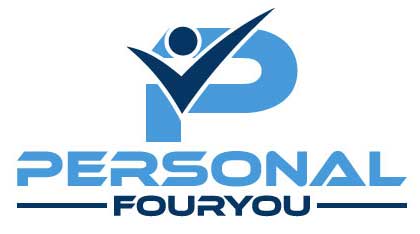
Mental Health Assessment For Anxiety
Eine Bewertung hinzufügen FolgeÜbersicht
-
Gründungsdatum Mai 8, 1921
-
Sektoren Fachinformatiker
-
Gepostete Jobs 0
-
Gesehen 131
Beschreibung des Unternehmens
Guide To Culturally Competent Mental Health Assessments: The Intermediate Guide The Steps To Culturally Competent Mental Health Assessments
Culturally Competent Mental Health Assessments: An Essential Tool for Effective Care
In today’s progressively varied society, mental health specialists deal with the difficulty of delivering care that is not only effective but also conscious the cultural backgrounds of their clients. Culturally competent mental health assessments can substantially improve treatment outcomes by acknowledging and incorporating the distinct cultural factors that affect a person’s mental health. This post checks out the significance, methods, and best practices for culturally competent assessments in mental healthcare.
Comprehending Cultural Competence in Mental Health
Cultural competence refers to the ability of mental health practitioners to understand, interact with, and efficiently connect with people from diverse cultural backgrounds. This competency encompasses awareness of one’s own cultural identity, comprehending others‘ cultural environments, and using this knowledge in clinical practices. It is an ongoing process that includes knowing, adjustment, and humility.
Why Culturally Competent Assessments Matter
1. Improved Communication
Cultural skills enables practitioners to take part in meaningful discussions with clients. By understanding an individual’s cultural context, mental health professionals can produce a safe and trustworthy environment that encourages openness.

2. Enhanced Diagnosis
Cultural misunderstandings can lead to misdiagnosis. Many mental health signs may manifest in a different way throughout cultures, making it vital to interpret habits and signs within the proper cultural structure.
3. Increased Engagement
When customers feel comprehended and appreciated in their cultural identities, they are most likely to participate in the healing process, causing much better adherence to treatment strategies.
4. Tailored Interventions
By incorporating cultural understanding into assessments, mental health professionals can develop preferable interventions and treatment strategies, boosting the overall efficiency of care.
Table: Key Components of Culturally Competent Mental Health Assessments
| Component | Description |
|---|---|
| Awareness | Acknowledging one’s own cultural biases and values. |
| Understanding | Comprehending the cultural backgrounds of customers. |
| Skills | Developing interaction techniques that appreciate cultural distinctions. |
| Attitude | Cultivating an open-minded technique towards diverse viewpoints. |
| Versatility | Changing assessment and treatment methods to fit cultural contexts. |
Techniques for Implementation
To perform culturally competent mental health assessments, specialists can embrace the following techniques:
1. Training and Education
- Pursuing continuing education courses that concentrate on cultural proficiency can prepare mental health specialists for varied client interactions.
- Participating in workshops and seminars that highlight the impact of culture on mental health.
2. Usage of Culturally Relevant Assessment Tools
- Select assessment tools that have actually been normed on diverse populations or have culturally relevant adaptations.
- Tailor existing assessment instruments to much better fit the cultural backgrounds of clients.
3. Involving Community Resources
- Work together with cultural companies and neighborhood leaders to acquire insights into particular cultural practices and beliefs.
- Utilize community intermediaries or interpreters when essential to assist in clearer interaction.
4. Structure Therapeutic Relationships
- Develop relationship by showing authentic interest in clients‘ cultural backgrounds and experiences.
- Motivate customers to share their cultural beliefs and values that impact their mental health.
5. Routine Self-Reflection
- Mental health professionals should participate in regular self-reflection to identify their own predispositions and presumptions.
- Seek feedback from clients regarding their experiences of cultural understanding in the assessment process.
Best Practices for Conducting Assessments
When performing culturally competent assessments, practitioners ought to think about the following best practices:
-
Develop a Cultural Formulation:
- Gather details on the customer’s cultural identity, including ethnicity, language, religious beliefs, and social norms.
-
Make Use Of a Strengths-Based Approach:
- Identify and emphasize the strengths and resources intrinsic in a customer’s cultural background.
-
Respect Client Autonomy:
- Empower clients to lead conversations about their cultural backgrounds and seek their input on treatment alternatives.
-
Incorporate Family Perspectives:
- Involve relative in assessments when suitable, as family dynamics can substantially impact a person’s mental health.
-
Understand Cultural Stigmas:
- Understand that mental health issues may carry various levels of stigma across cultures, affecting how customers approach treatment.
Frequently Asked Questions (FAQs)
Q1: What is cultural proficiency in mental health?A1: Cultural competence in mental health refers to the capability of professionals to comprehend and address the cultural factors that influence a customer’s mental health and wellbeing. This consists of knowledge of diverse cultural practices, worths, and communication designs.

Q2: Why is cultural proficiency essential in mental health assessments?A2: Cultural skills is important because it improves interaction, decreases the risk of misdiagnosis, increases client engagement, and permits customized treatment methods that resonate with the client’s cultural background.
Q3: What are some common barriers to culturally competent assessments?A3: Common barriers consist of lack of training, biases held by the specialist, insufficient cultural understanding, and systemic issues within healthcare that impact access to take care of varied populations.
Q4: How can mental health professionals enhance their cultural skills?A4: Mental health professionals can enhance their cultural skills through continuous education, engaging with varied communities, receiving mentorship from culturally varied colleagues, and actively looking for feedback from customers about their cultural experiences in treatment.
Culturally competent mental health assessments are not just an ethical imperative; they are essential for improving treatment outcomes and cultivating a more inclusive mental health care system. Mental health specialists must accept cultural skills as a constant journey that improves their practice, permitting them to supply much better care to people from all walks of life. By carrying out the techniques described above, practitioners can construct a more culturally conscious and responsive mental health field that benefits everybody included.

